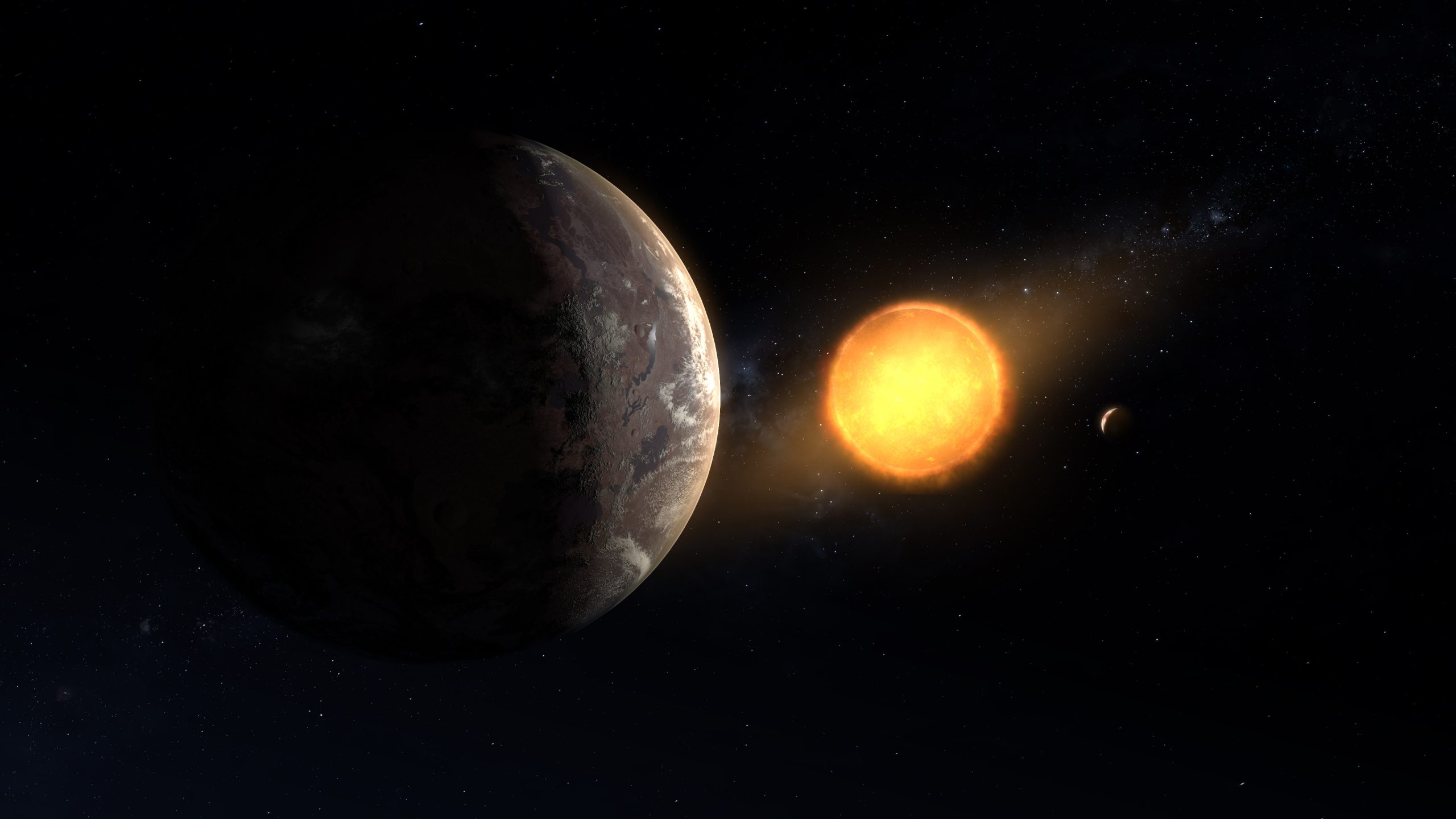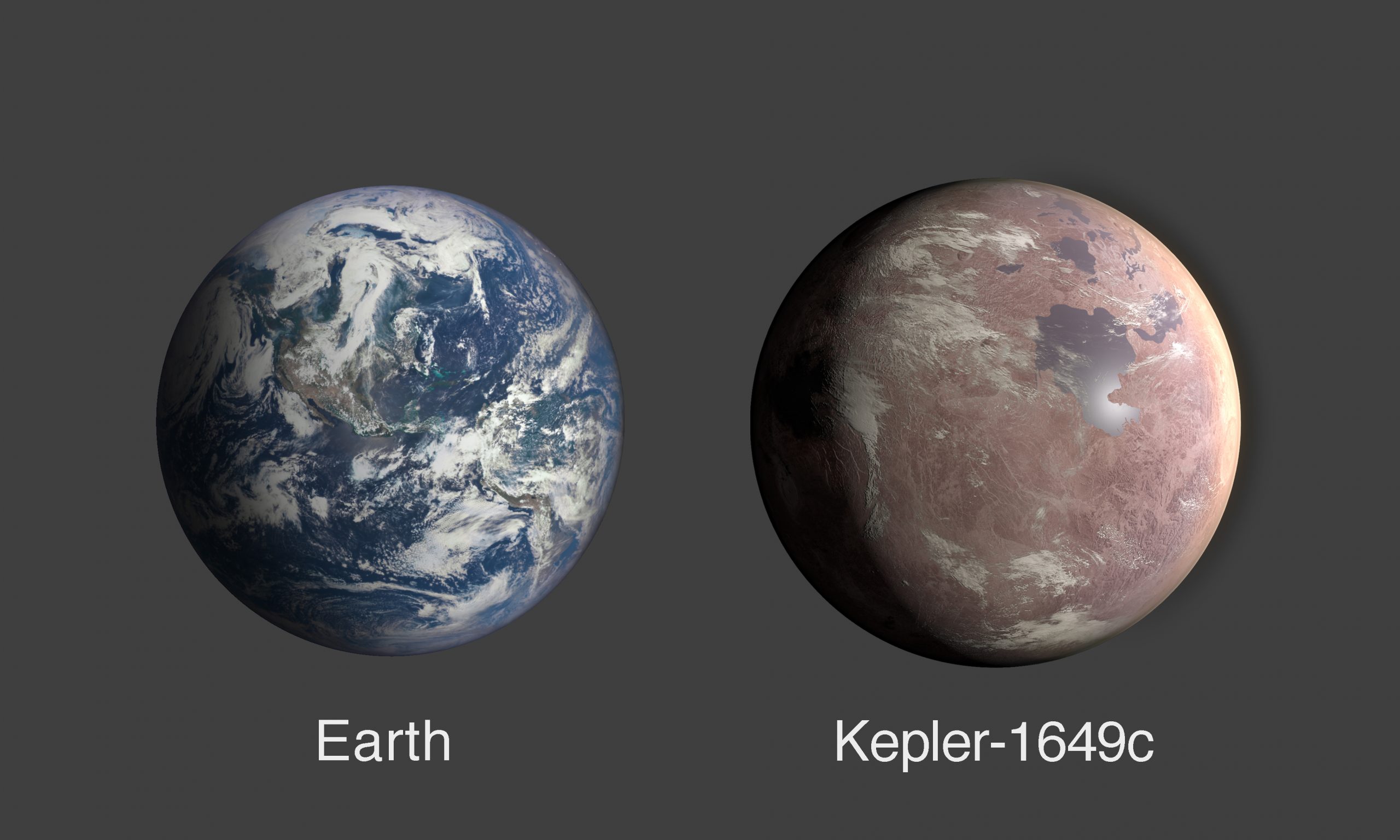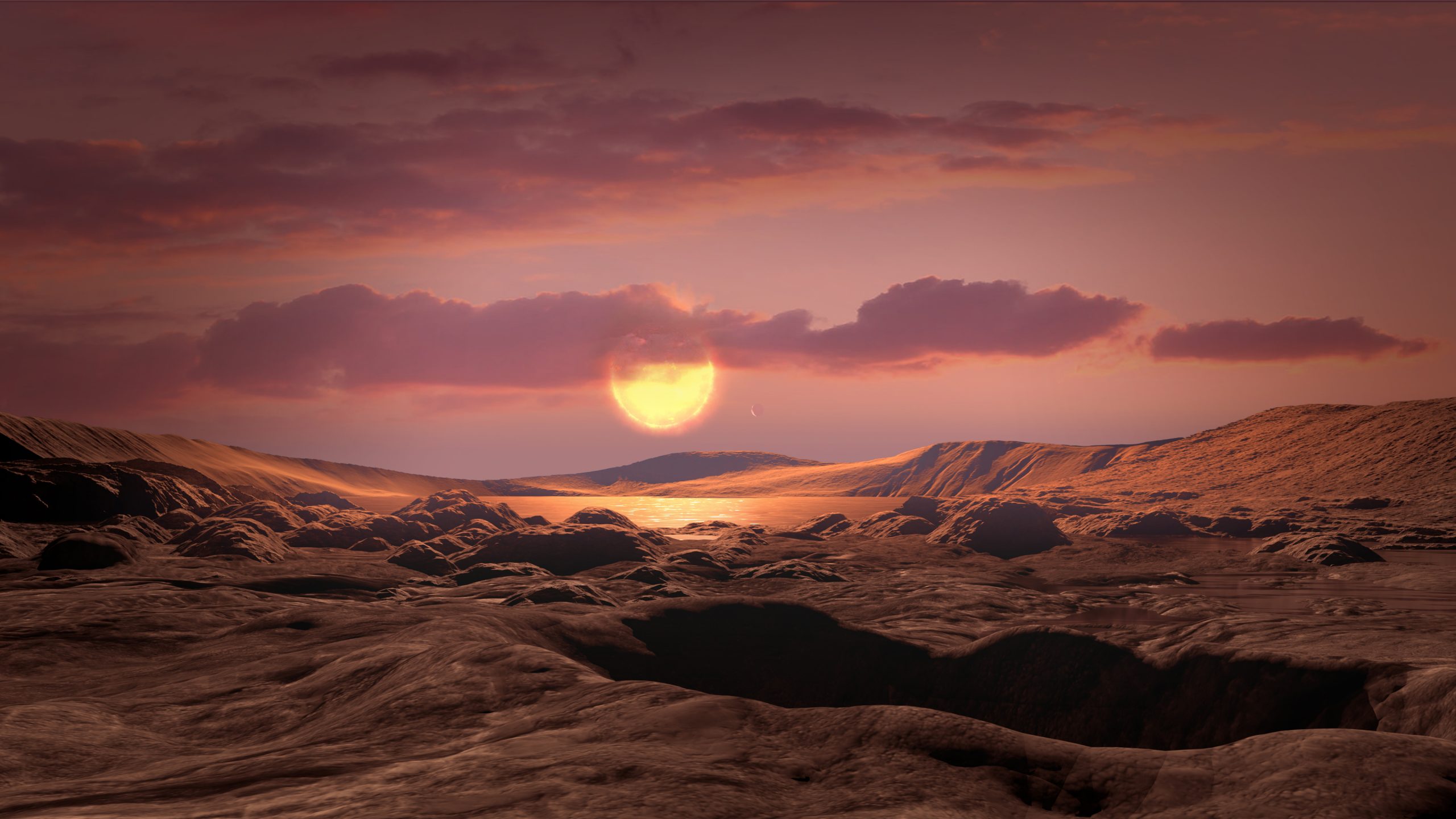Kepler-1649c: an Earth twin with a short-tempered host star
The Kepler telescope has already been shut down, but astronomers are still finding new exoplanets in its data. Kepler-1649c, which is 300 light-years from Earth, is one of these recently discovered treasures. The planet was overlooked by the first, automated search through the data. The rocky planet has one very intriguing characteristic: it is the most Earth-like exoplanet discovered to date.
Kepler-1649c is only 1.06 times larger than Earth. Its host star supplies it with about three-quarters of the energy that the Earth receives from the Sun. That means that water, if it exists there, would be liquid on its surface. One unlucky thing is that Kepler-1649c orbits around a red dwarf (and once every 19.5 Earth days). These dwarf stars are known for the bad habit of regularly plunging their planets into devastating outbursts of radiation, flares, which likely blow any atmosphere or water into space. Depending on the frequency of these events, the chances for life on Kepler-1649c could be severely reduced.
Researchers have also found the planet’s sibling, Kepler-1649b. It circles the red dwarf on a much closer orbit, something like that of Venus in our Solar System. It is of a similar size and needs about nine days for one orbit. Because it receives about as much radiation energy as Venus, astronomers are also hoping to glean new information from it too.


